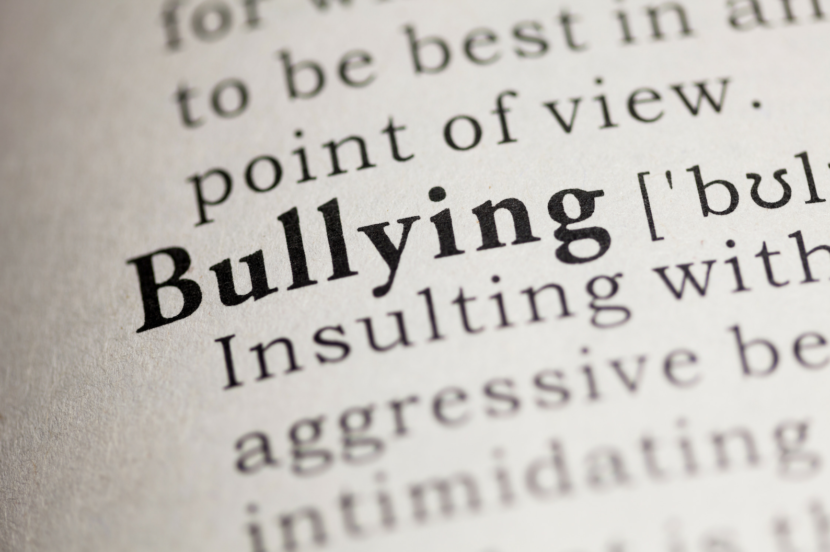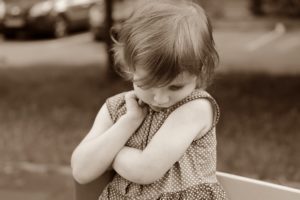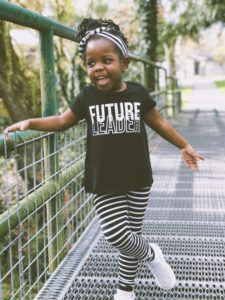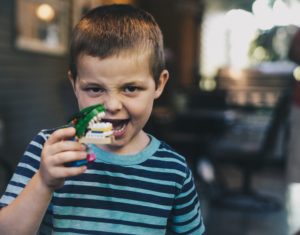Educators in early learning environments have an important role to play in detecting and preventing bullying behaviour in young children. They are among the first teachers that young children have about positive and healthy relationships.
Being aware of and prepared for bullying in early childhood can help children learn appropriate skills to avoid the behaviour.
What Is Bullying Behaviour In Early Childhood?
Bullying is emotional or physical abuse. A bully intends to hurt someone (either physically or emotionally), often targeting the same victim repeatedly, and chooses a victim who is vulnerable.
There are three main types of bullying in early childhood:
- Physical, such as hitting or pushing
- Verbal, including yelling or name calling
- Relational, which involves excluding or inciting others to hurt a victim.
Bullying among young children looks different to that among children in school. Early educators who know the ways young children can be involved in bullying can hep prevent and stop it from continuing.
How Does Bullying Behaviour Develop?
In early childhood, learning to get along with others is an important life skill. Children in early learning settings have their first ongoing social experience when they can observe, learn and practice the social skills needed to interact and build healthy relationships with peers.
Children aren’t born bullies. As a child grows, they are exposed to many experiences that inform how they develop emotional regulation, problem solving and social skills.
If a child is experiencing or seeing verbal or physical aggression regularly in the family environment, it can mean the child is more likely to engage in bullying behaviour themselves.
Because young children are often still working out how to interact and share, some behaviour may be precursors to bullying rather than true bullying. This includes things like making mean faces, grabbing objects, pushing others aside, refusing to play together, or telling lies about others.
These pre-bullying behaviours aren’t done to repeatedly and deliberately to hurt another child. But they can turn into a pattern of bullying if not dealt with and allowed to continue.
Preventing Bullying In Early Childhood
Early childhood educators have a vital role in preventing bullying and teaching young children how to recognise bullying behaviour. This means fostering social and emotional skills, modelling positive behaviour, setting boundaries and watching for warning signs of bullying.
Many early learning centres and kindergartens are encouraged to develop an anti-bullying policy. This makes it clear where the child service stands on the issue of bullying and what action the will be taken in the event of bullying.
Early childhood educators have an ideal environment to teach and model the social skills children need to learn to develop positive relationships and prevent bullying.
The most important social skills needed to prevent bullying are:
- Empathetic children understand and respond to what others feel. They know bullying hurts, are less likely to bully others, and will support those being bullied.
- This skill helps children to respond to bullies effectively, and reduces the chance they will become a victim of bullying. Learning to say no and respect the word no is an important step to understanding boundaries.
- Problem solving. Being able to resolve social problems constructively and without aggression can help to stop and prevent bullying.
Social skills can be taught in many ways in the early learning environment, such as role-play, stories, puppets, games and videos.
During a regular day, there are many opportunities where educators can guide children to practice what they are learning to interact positively. Children can learn to take it in turns during games, include others in play, be friendly to each other, and help out others during activities.
Preventing Bullying Day To Day
In every early childhood setting, every day, educators are given the chance to support positive behaviour, stop bullying behaviours and guide children to active in other ways.
It’s important to start by setting expectations for children. Pay attention to and encourage positive behaviour such as sharing or taking turns. This reinforces the positives of cooperative behaviour and reduces the chances of bullying behaviour.
Intervention is needed at times but it’s wise for educators to recognise the difference between conflict and bullying. Certain behaviour can be normal for young children as they figure out their way through the world.
Conflict will happen between children from time to time, as their self-interests clash, such as having the same toy or pushing in line. Educators can intervene to help the children negotiate a compromise or mutually agree on a solution.
When bullying behaviour occurs, that is when a child repeatedly and intentionally hurts another, educators need to immediately intervene to stop the bullying.
The intervention can be a teaching moment, where an educator can guide and change children’s behaviour during bullying, both the bully and the victim. Use the following tips to turn intervention into a teaching moment:
- Clearly say stop and stop the bullying
- Separate victim and bully if it’s necessary
- Firmly and calmly describe the behaviour and why it’s not ok
- Stand with the victim and encourage them to speak up
- Encourage other children who helped the victim.
After the bullying incident, educators should always check in with the bully and victim separately. Children who bully must be aware it’s not acceptable and why, and guide them to understand the effects of bullying. Those who are victims of bullying must feel supported, able to ask for help, and encouraged to be assertive.
Early childhood educators have a responsibility to help children move past bullying behaviour and build positive and healthy relationships. Educators can watch for patterns of behaviour that indicate bullying is likely and encourage children to practice the skills they need to be resilient against bullying.
Sam McCulloch is a freelance content writer and editor, with a special interest in parenting, birth and early education. Sam believes in the importance of building a village so no parent is left behind or feels unsupported. When she’s not writing great content, you can find her trying to keep up with three kids, enjoying the great outdoors or reading a good book.





